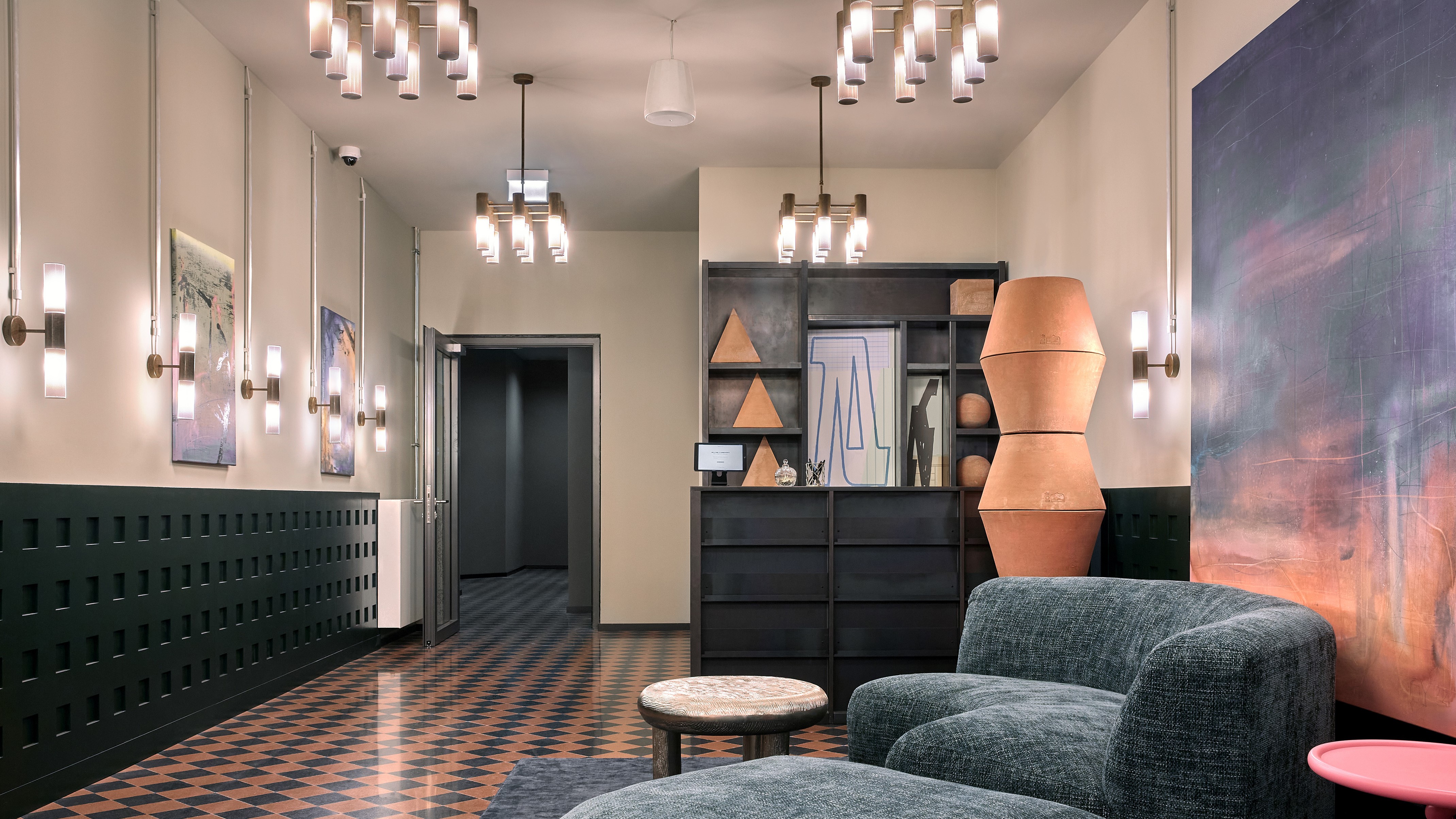Oliver Lehmann, General Manager at Mindspace Germany, talks about the potential unleashed when office environments are enhanced by hotel-style features. Clear cost structures, flexibility, and first-class service create an attractive work environment for companies and their staff. Mindspace is one of the leading providers of coworking spaces in Europe.
You have recently spoken about the significance of office hotelification. Can you explain what’s meant by the term?
Lehmann: Owners, operators and tenants of office buildings can learn in many ways from hotel operators, especially regarding the importance of service. Their aim should be to make the guest feel comfortable – and, in an office building, the guests are the individual employees of the companies that occupy the building. We have noticed an increasing trend towards hotelification since the end of the last Covid-19 lockdown, if not before. Why come back to the office? The answer is work environments that are not only attractive but also raise people’s productivity and wellbeing to a completely new level.
What specific hotel-style qualities could be introduced into office environments?
Lehmann: In my view, qualities such as cost transparency, flexibility and service are advantages which, within just a few years, will be taken for granted in the office market. Cost transparency is a particularly vital quality for flexible office providers like us, as well as for our clients. With a transparent cost structure, offices can offer users a clear all-in price without hidden extra costs or unexpected price increases – similar to hotel reservations. Our members are offered a standard all-inclusive price per workspace for flexible use by any employee of the company. This all-in price includes the cost of the space and the energy costs, regardless of any general price increases. It also includes many other services such as internet use, printing stations and a varied catering service with coffee, tea, milk, muesli and fruit. The concept of shared spaces is not only sustainable but also efficient, as it enables the use of common areas instead of every company having to provide its own kitchen or lounge area.
Which brings us to day-to-day office life... What about flexibility in this context?
Lehmann: Flexibility is another crucial feature in office spaces that’s increasingly sought-after by companies. They are looking for shorter and more flexible terms to meet continuously changing requirements. As flexible office providers, in these uncertain times one of our great advantages is that we can let companies use workspaces as and when they need them and offer different solutions – for instance team suites, private areas, day passes and much more. Like in hotels, available spaces can be booked at quite short notice and for very short periods. This means companies are able to continue operating at all times, because they can enlarge, or decrease, their office spaces as needed.
Why should landlords and tenants of office space put more emphasis on service?
Lehmann: Guests at a first-class hotel are met with every comfort, and they enjoy the experience. In the future, offices will also increasingly be measured by these standards. The Fraunhofer Institute expects that yoga classes and relaxation sessions could be commonplace in offices by 2030. We are also increasingly seeing social spaces being included in New Work plans. Any layout that helps to improve internal communication is possible. In the future, we could see the introduction of reception teams in conventional offices like those in luxury hotels, to take care of people’s needs and help make their day easier.
At Mindspace, we employ what we call community managers to help our members cope with minor and major everyday challenges. This reduces stress levels and improves employees’ work-life balance.
But to what extent is it in the interests of the owners and the tenant companies to promote a good work-life balance for employees?
Lehmann: It means they can offer an extremely pleasant work environment. Providing social spaces and making yoga classes and relaxation sessions a part of the office routine attracts employees into the office and improves retention levels. An investment of this kind is ultimately much less expensive than a headhunter or the costs of employee burnout. Our whole offering is aimed at protecting and promoting people’s mental health.
Inspiring offices are focused on community values and diversity. Staff can gather in these spaces after their work is finished to chat and end the day together in a relaxed atmosphere. Also, festive occasions are celebrated, and inspiring events are organized, filling the work environment with positive energy and a creative buzz.
Sounds good. But how important is hotelification for the office market, actually?
Lehmann: According to a survey conducted by the International Workspace Group (IWG), two-thirds of CFOs in different sectors aim to reduce their real estate costs by up to ten percent. For this reason companies are interested in cost clarity and expense capping. At the same time they are looking for flexible solutions to enable them to respond quickly to changes in market conditions. And we are all in the middle of a war for talent. The winners will be those who help their staff to identify with the company. This requires a familiar place for people to meet in, and strong interpersonal connections. Staff members who come into the office in the morning with a genuine smile on their faces appreciate their jobs and are naturally motivated to do their best every day.

